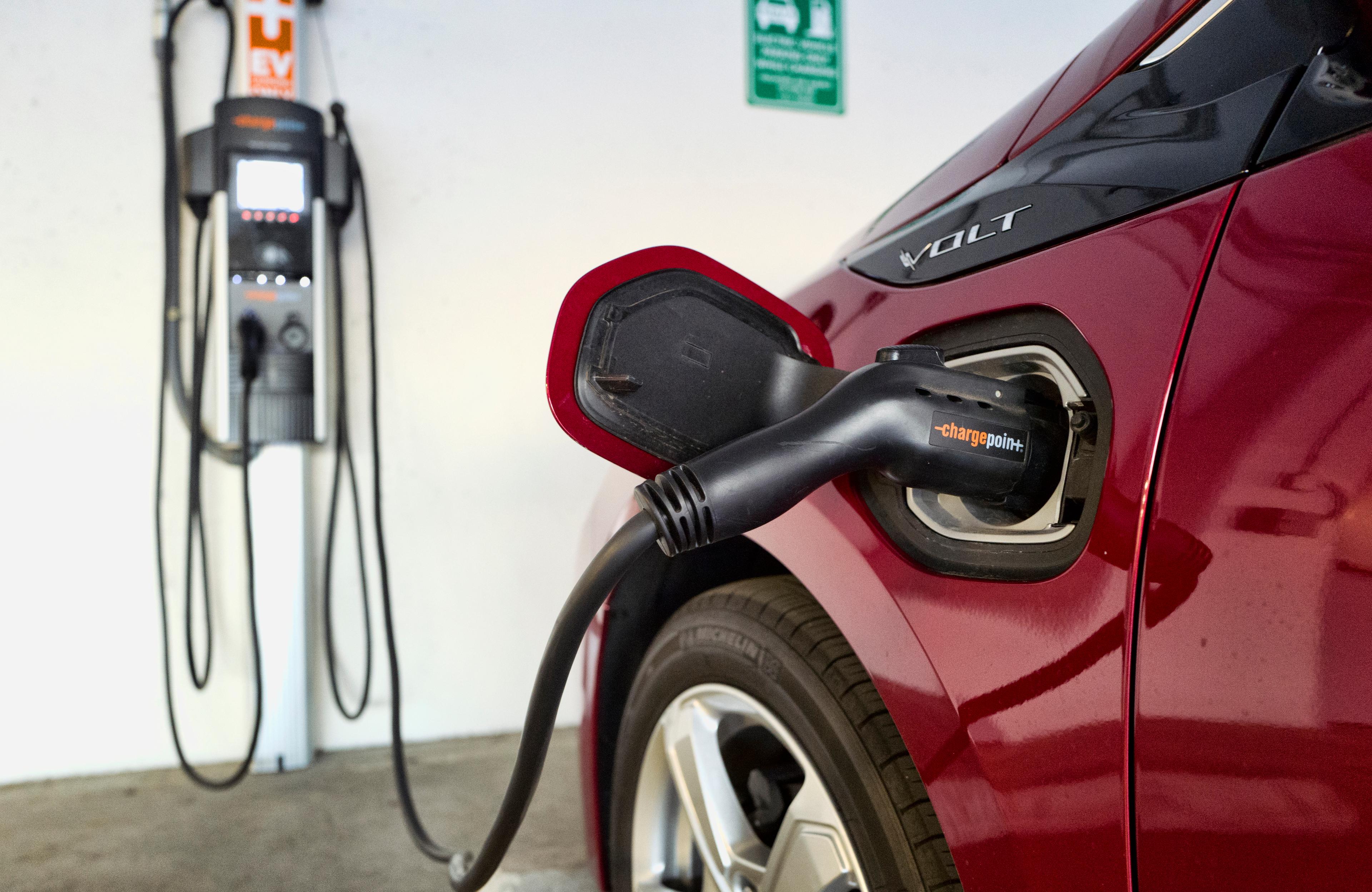
Louisville residents can now expect an electric vehicle to haul away the contents of their curbside recycling and trash bins.
The city held a “ribbon cutting” Tuesday for a new all-electric residential recycling and waste collection fleet, which involved one of the bright blue trucks rolling through a loosely held ribbon on the city’s Main Street. Republic Services of Denver owns and operates the collection of four vehicles that started roaming neighborhood streets on Oct. 1.
Louisville Mayor Chris Leh said the community in Boulder County is now the first U.S. city to adopt a fully electric residential waste collection fleet.
“We know electric vehicles reduce greenhouse gas emissions,” Leh said. “They’re also going to reduce noise pollution, which is something our residents will be delighted about.”
Almost three years after the Marshall fire destroyed large parts of Louisville, the former coal mining community in Boulder County remains committed to meeting climate goals in its sustainability action plan. All-electric garbage trucks offer one tool to cut carbon emissions and other pollutants released by traditional diesel-powered garbage trucks.
The new trucks will also help Republic Services inch closer to its own climate goals. By the end of 2024, the company plans to operate more than 50 EVs across the country, and it expects half of its new truck purchases will be electric vehicles by 2028.
At the launch event, Brett Rogers, a vice president of operations technology for Republic Services, said the company has shown electric trucks can complete routes on a single charge in a variety of terrains and weather conditions. Other advantages include broad windshields and other sensors designed to help drivers navigate neighborhood streets, which make the vehicles “some of the safest trucks on the road,” Thornton said.
Other pilot projects have found waste collection is a good fit for medium- and heavy-duty electric vehicles. The relatively short routes almost always start and end at the same place, so the trucks have ample opportunity to recharge. Frequent stops also allow the vehicles to pump energy back into the batteries through their regenerative braking systems.
Despite those advantages, electric trucks are far more expensive upfront than traditional gas- or diesel-powered vehicles. The question is whether lower operating and maintenance costs offered by EVs could offset the price tag and help a city save money in the long run.
The electric truck fleet will increase costs for Louisville residents. Kurt Kowar, the city’s director of public works and utilities, said residents will soon start paying around $20 per month for waste pickup, roughly a $5 per month increase over current prices.
Louisville requests proposals for waste collection services every five years. In the latest round of bids, Kowar said Republic Services offered to continue picking up waste using natural gas trucks, which would have more or less maintained current prices. An option for an EV fleet required residents to pay a premium, but the city decided the extra cost was worth the reduction in noise and pollution, Kowar said.
Kowar added the city isn’t using the full capacity of the new all-electric fleet. If other communities use the company’s services, it could help cut costs.
It’s unclear if or when electric trucks could offer a cheaper option for garbage collection. A recent report from the U.S. Department of Energy estimates about half of medium- and heavy-duty trucks will be cheaper to buy, operate and maintain than traditional diesel-powered vehicles by 2030. The specifics, however, depend on everything from battery costs to diesel prices.
Colorado offers grants to help cities purchase electric school buses and trucks, which might tip the financial equation in favor of electric garbage trucks. Neither Louisville nor Republic Services received a state grant to support the new EV truck fleet.








